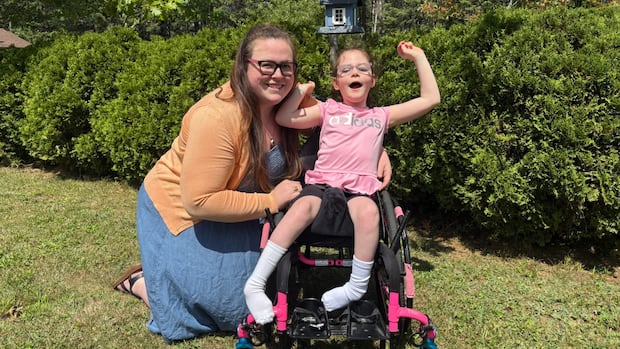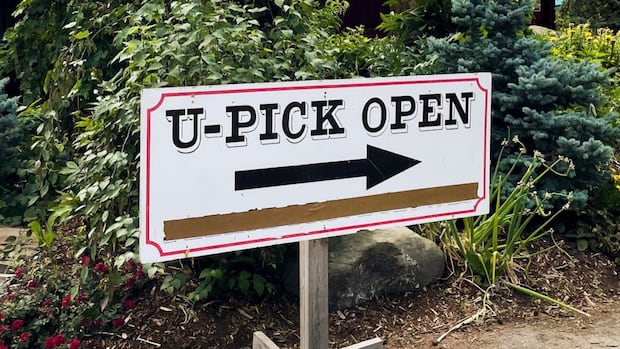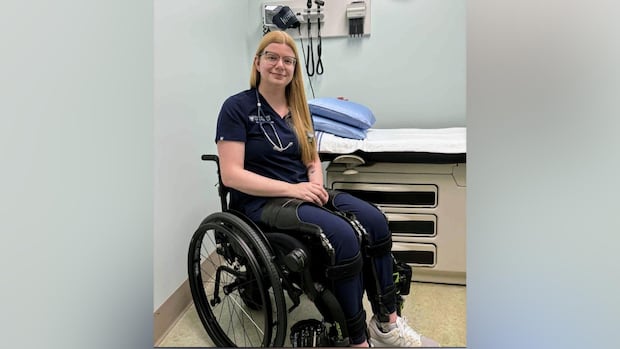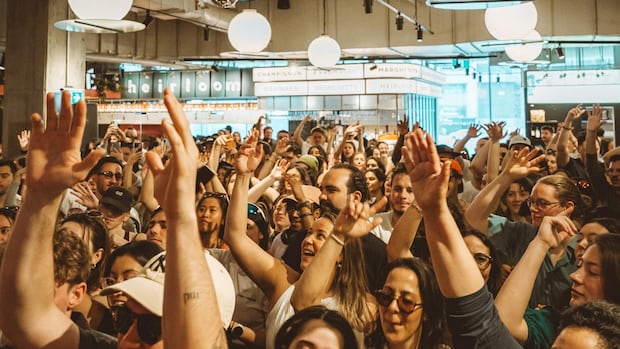This First Person column is written by Jessica Sunter, a nurse living with auditory processing disorder in Ottawa. For more information about CBC’s First Person stories, please see the FAQ.
“We’re having cheese ‘n’ kabobs.”
That’s what I heard my spouse say. I knew I didn’t hear it right but I couldn’t figure out why. So I told her what I heard, and I asked her to repeat herself.
“Chicken kebabs,” she repeated. Ah yes, that made more sense. What didn’t make sense was why I misunderstood the first time when I was literally sitting one foot away from her.
As I would soon confirm with testing, it’s not because my ears were struggling to hear. Instead, my brain was struggling to process the sounds.
WATCH | What it feels like to live with auditory processing disorder:
For Jessica Sunter, who developed the condition after a concussion five years ago, APD means the ears can hear and take in the sounds around you, but the information the brain gets doesn’t make sense.
Dyslexia, but auditory
Several months after the kebabs incident, I was diagnosed with auditory processing disorder (APD).
My audiologist once described it as similar to dyslexia, but auditory. The ears can take in the sounds around you, but the information the brain gets doesn’t make sense.
Some people are born with APD but others, like me, can develop it after an injury or trauma to the brain.
My world shifted after I slipped off a wet porch and hit my head, leading to a concussion. Instead of recovering right away, the symptoms continued, turning into post-concussion syndrome.
While my other symptoms, such as sensitivity to light, gradually improved over the years, the issue with hearing things differently remained and it took a long time for me to understand that it was more than just sensitivity to noise.

It also took me a long time to find an audiologist who could diagnose what was going on. She asked me to answer questions about my tolerance for music, my ability to understand a conversation with background noise, how easily I am distracted by noises and more.
The symptoms of APD overlap with other medical conditions, which explains why it can mistakenly be attributed to memory problems, aphasia, difficulty with concentration or just plain hearing loss (which I also have, though it is only part of the story).
Before meeting my audiologist, I struggled with a lot with simple interactions with the world around me, like listening to music, reading, and talking to my family and friends. My spouse had to repeat herself frequently.

Fo example, I was sitting across from my spouse in a restaurant, listening to her tell me something when suddenly, instead of words, I heard just sounds. This lasted several seconds and then I was able to understand her again. It was as if she was speaking in one language and suddenly she switched to a different language I didn’t understand.

Another time, when my spouse and I were both sick, I thought she asked me if we had any “music treats.” The words are English but they didn’t mean anything to me. I had to tell her I didn’t understand what she said. She repeated herself, “Neo Citran” — the hot drink for colds.
Experiences like these felt disorienting, and though learning I had APD was scary, getting the diagnosis also felt like a door had finally been opened and I could get out of prison. There was a way to interact with the world after all.

How to cope with APD
My audiologist told me there is no cure for APD but there are tools and tricks to make it easier to live with.
Hearing aids help both with my hearing loss and with tuning to specific sources of sound so that background noises don’t distract me as much. When I am having an important phone conversation, I use earphones in both ears for the same reason.
When my spouse wants to talk to me, I stop what I’m doing first because my brain can’t process multiple streams of information anymore.
In the five years since my accident, I’ve had to advocate for myself a lot — from finding doctors to diagnose and treat my various symptoms, to helping people at work and at home to understand my new communication needs, and even to getting the space I need when the world is too much. But it paid off in the end.
My future is looking brighter because now I know how to communicate better with the people around me. I’ve learned to use the tools I have make up for the changes in how my brain works.
Bonus, I can listen to and enjoy music again.
It’s also great that now my spouse isn’t frustrated about having to repeat herself over and over.
The downside is that the way she always gets my attention now is making me feel a little like Siri. Our conversations often begin with, “Hey, Jessica!”

Do you have a compelling personal story that can bring understanding or help others? We want to hear from you. Write to us at [email protected].







